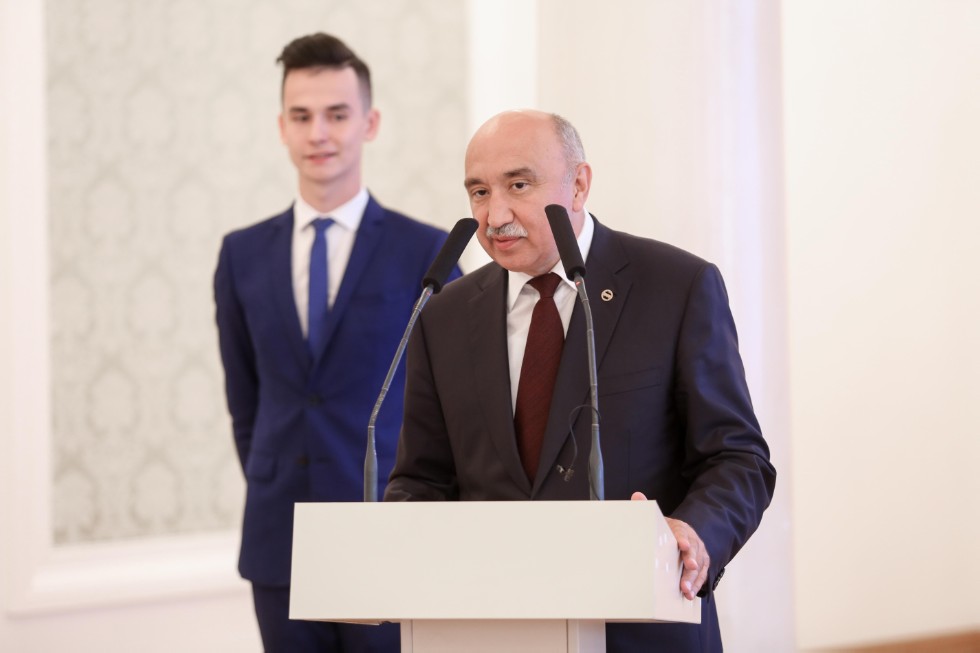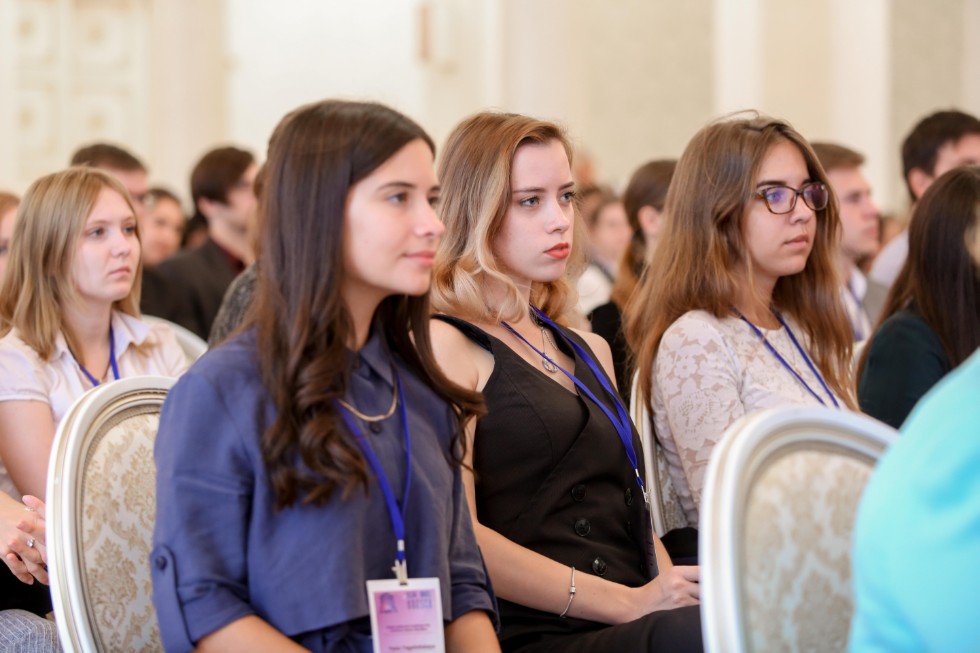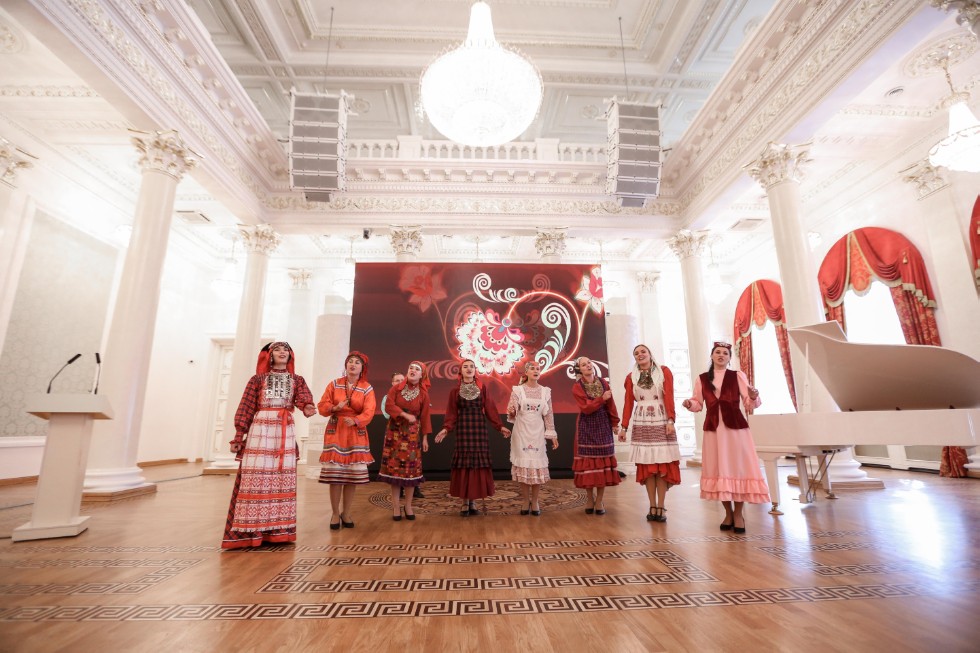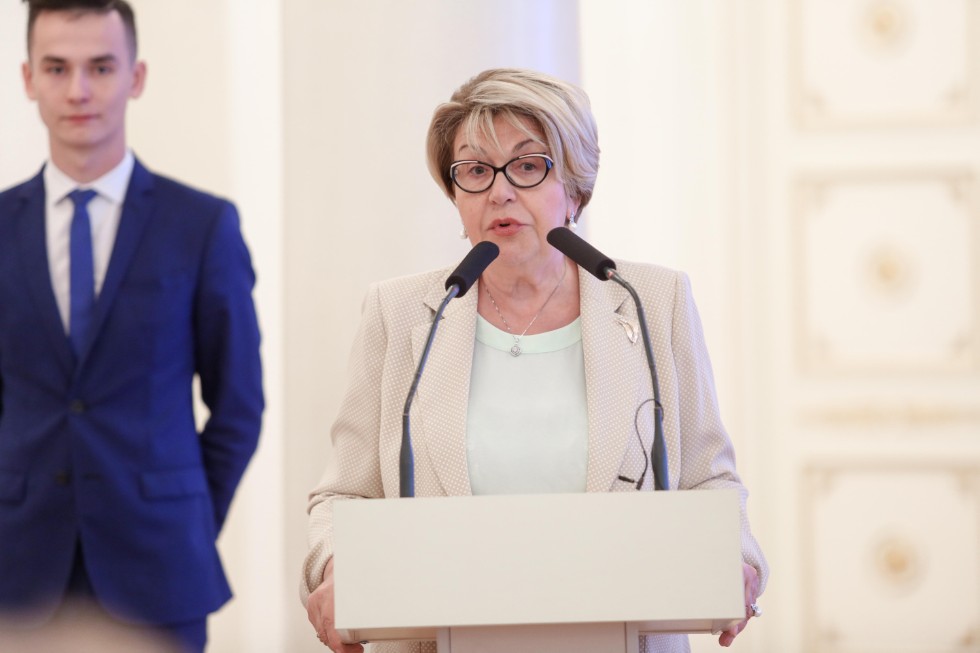Rector Ilshat Gafurov opened Model UNESCO in Kazan City Hall

178 participants have joined the four-day event.
Just last year, Kazan Federal University hosted Model United Nations with a hundred contributors from five universities. The experience was successful, and this year’s Model UNESCO aims to further prove that.
In his greeting, Rector Gafurov said, “Just the day before yesterday we opened an international forum here. And now we are launching the first ever Model UNESCO. I wish you success and want you to remember this day for a long time.”
Model UNESCO, a series of role-playing events, is being held on 7th – 10th September. As history has shown, young diplomats can offer really interesting ideas for pertinent international problems.
Head of Rossotrudnichestvo (Federal Agency for Commonwealth of Independent States Affairs, Compatriots Living Abroad, and International Humanitarian Cooperation) Eleonora Mitrofanova opined, “UNESCO has been tasked with advancing modern ideas and promoting notions of peace. It has always worked on global legal instruments. You have to delve deep into all of that. UNESCO’s decision-making and negotiation mechanisms are different from the UN’s.”
Among the participants 94 are from Russia, and they represent 14 universities.
***
Another important development occurred during the Intercultural Dialogue Forum on 6th September. The International Institute for Central Asian Studies presided over a meeting about northern corridors of the Great Silk Road, of which Russia is a part. The discussion included Kazan Federal University (as the supervisor of the Russian part of this project), Azerbaijan Institute of Oriental Studies, National Academy of Science of Azerbaijan, Margulan Institute of Archaeology, National Academy of Sciences of Kazakhstan, Khakassia Research Institute of Language, Literature and History, and Tajik Technical University.
Head of Kazan Federal University World Cultural Heritage Center Rafael Valeev concluded, “We now plan to determine the sequence of measures to study Russian corridors of Silk Road in Russia, including those which go through Tatarstan. Results should help us apply for inclusion of the corridors into a transnational serial UNESCO nomination.”







